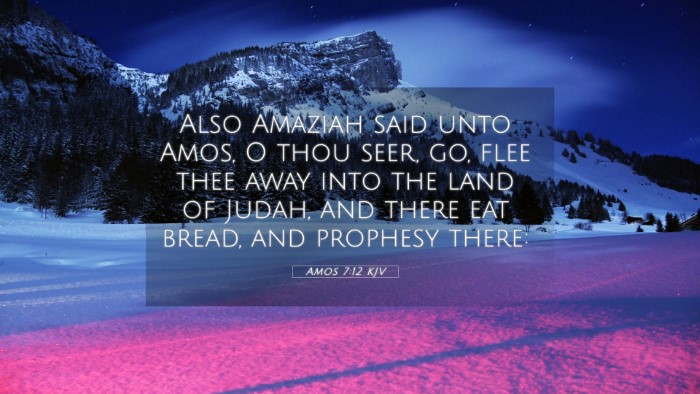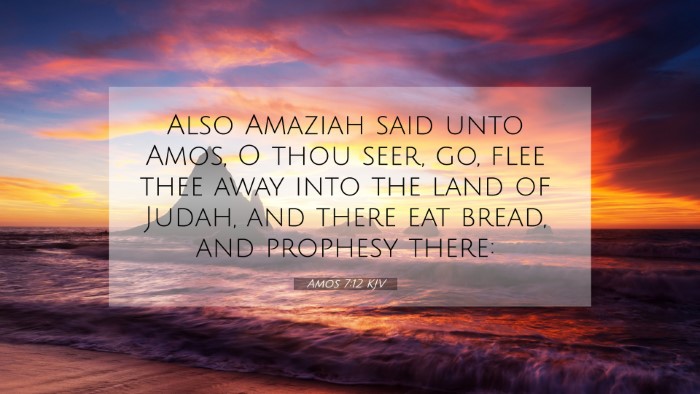Old Testament
Genesis Exodus Leviticus Numbers Deuteronomy Joshua Judges Ruth 1 Samuel 2 Samuel 1 Kings 2 Kings 1 Chronicles 2 Chronicles Ezra Nehemiah Esther Job Psalms Proverbs Ecclesiastes Song of Solomon Isaiah Jeremiah Lamentations Ezekiel Daniel Hosea Joel Amos Obadiah Jonah Micah Nahum Habakkuk Zephaniah Haggai Zechariah MalachiAmos 7:12 Similar Verses
Amos 7:12 Cross References
Also Amaziah said unto Amos, O thou seer, go, flee thee away into the land of Judah, and there eat bread, and prophesy there:
Uncover the Rich Themes and Topics of This Bible Verse
Listed below are the Bible themes associated with Amos 7:12. We invite you to explore each theme to gain deeper insights into the Scriptures.
Amos 7:12 Cross Reference Verses
This section features a detailed cross-reference designed to enrich your understanding of the Scriptures. Below, you will find carefully selected verses that echo the themes and teachings related to Amos 7:12 KJV. Click on any image to explore detailed analyses of related Bible verses and uncover deeper theological insights.

Matthew 8:34 (KJV) »
And, behold, the whole city came out to meet Jesus: and when they saw him, they besought him that he would depart out of their coasts.
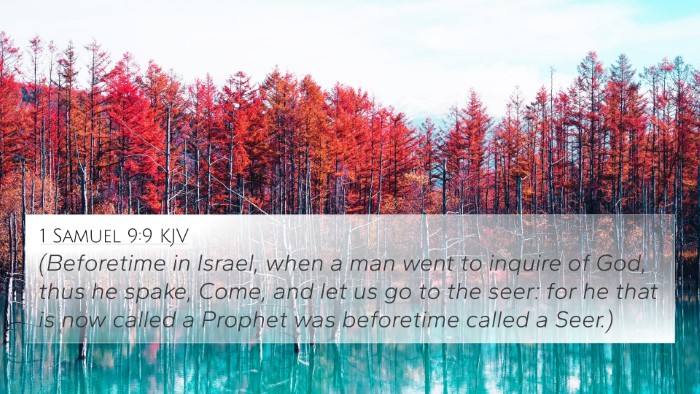
1 Samuel 9:9 (KJV) »
(Beforetime in Israel, when a man went to inquire of God, thus he spake, Come, and let us go to the seer: for he that is now called a Prophet was beforetime called a Seer.)
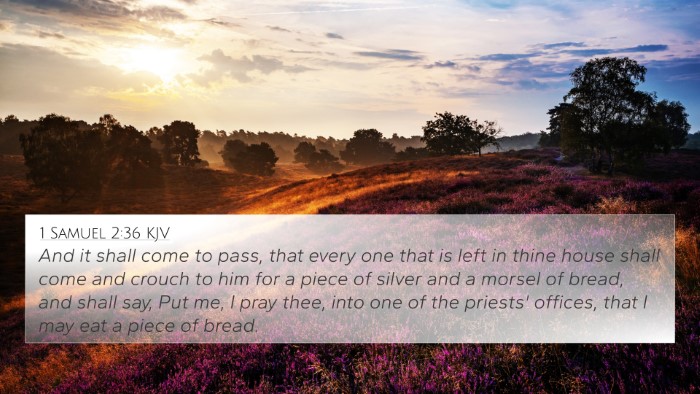
1 Samuel 2:36 (KJV) »
And it shall come to pass, that every one that is left in thine house shall come and crouch to him for a piece of silver and a morsel of bread, and shall say, Put me, I pray thee, into one of the priests' offices, that I may eat a piece of bread.

1 Corinthians 2:14 (KJV) »
But the natural man receiveth not the things of the Spirit of God: for they are foolishness unto him: neither can he know them, because they are spiritually discerned.
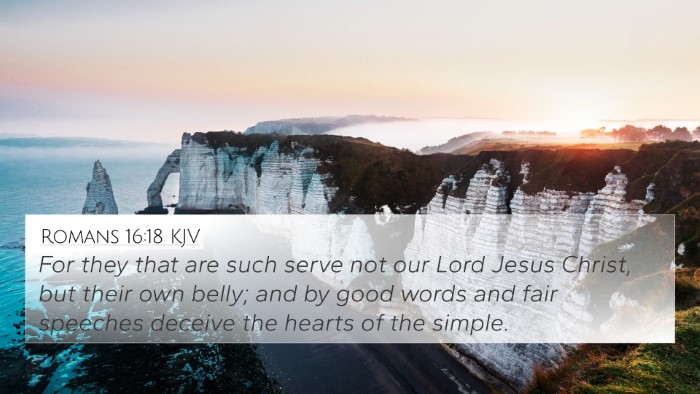
Romans 16:18 (KJV) »
For they that are such serve not our Lord Jesus Christ, but their own belly; and by good words and fair speeches deceive the hearts of the simple.
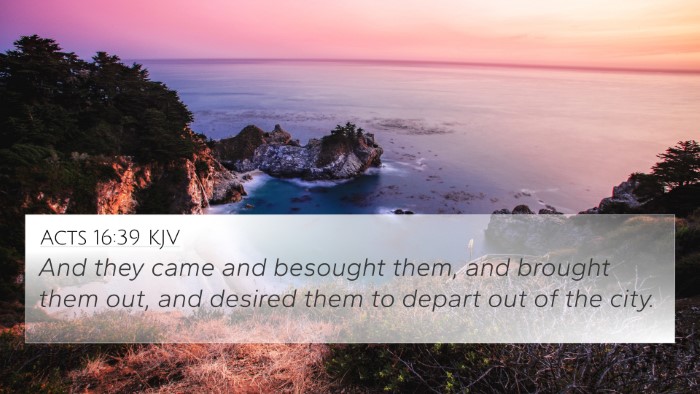
Acts 16:39 (KJV) »
And they came and besought them, and brought them out, and desired them to depart out of the city.

Luke 8:37 (KJV) »
Then the whole multitude of the country of the Gadarenes round about besought him to depart from them; for they were taken with great fear: and he went up into the ship, and returned back again.
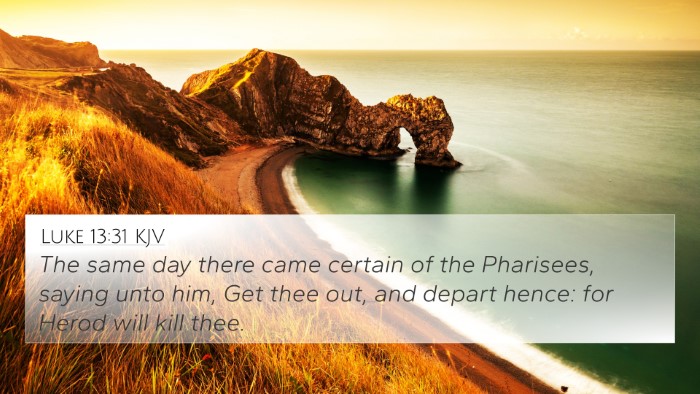
Luke 13:31 (KJV) »
The same day there came certain of the Pharisees, saying unto him, Get thee out, and depart hence: for Herod will kill thee.

Malachi 1:10 (KJV) »
Who is there even among you that would shut the doors for nought? neither do ye kindle fire on mine altar for nought. I have no pleasure in you, saith the LORD of hosts, neither will I accept an offering at your hand.
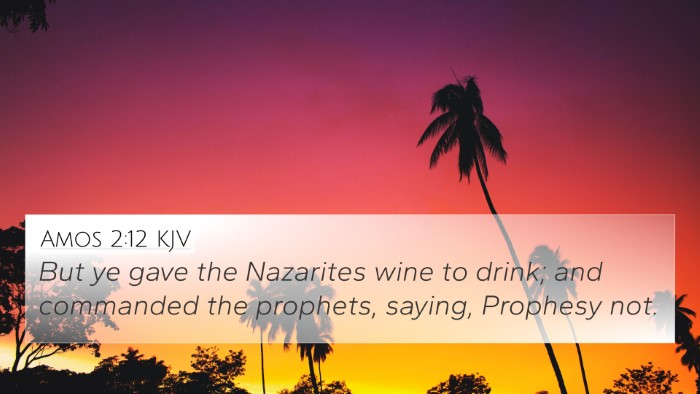
Amos 2:12 (KJV) »
But ye gave the Nazarites wine to drink; and commanded the prophets, saying, Prophesy not.

Ezekiel 13:19 (KJV) »
And will ye pollute me among my people for handfuls of barley and for pieces of bread, to slay the souls that should not die, and to save the souls alive that should not live, by your lying to my people that hear your lies?
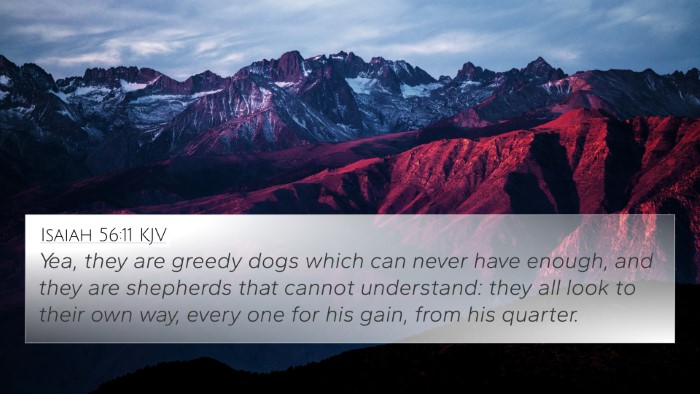
Isaiah 56:11 (KJV) »
Yea, they are greedy dogs which can never have enough, and they are shepherds that cannot understand: they all look to their own way, every one for his gain, from his quarter.

Isaiah 30:10 (KJV) »
Which say to the seers, See not; and to the prophets, Prophesy not unto us right things, speak unto us smooth things, prophesy deceits:
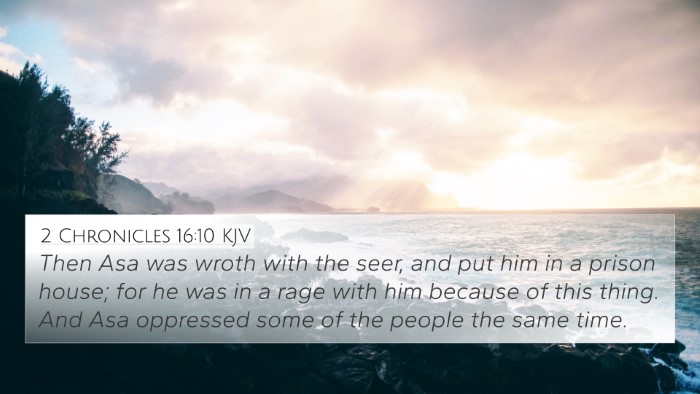
2 Chronicles 16:10 (KJV) »
Then Asa was wroth with the seer, and put him in a prison house; for he was in a rage with him because of this thing. And Asa oppressed some of the people the same time.

1 Peter 5:2 (KJV) »
Feed the flock of God which is among you, taking the oversight thereof, not by constraint, but willingly; not for filthy lucre, but of a ready mind;
Amos 7:12 Verse Analysis and Similar Verses
Bible Verse Meaning: Amos 7:12
Verse: Amos 7:12 - "Then Amaziah said unto Amos, O thou seer, go, flee thee away into the land of Judah, and there eat bread, and prophesy there."
Summary of Insights
The verse under consideration highlights the confrontation between Amaziah, a priest, and Amos, a prophet of the Lord. This incident provides critical insight into the nature of prophetic ministry and the struggle between divine authority and human opposition.
Contextual Understanding
Amos was called to deliver God's messages of judgment and repentance to Israel, a task that was often met with hostility. Amaziah’s directive to Amos to withdraw indicates a desire to silence the prophetic voice that challenged the status quo of idolatry and injustice prevalent in Israel at the time.
Commentary Insights
- Matthew Henry: Henry emphasizes the imperative of the prophet's call and the resistance faced by those who deliver God’s messages. He notes that Amos’ identity as a "seer" highlights his role in revealing God’s truths, which are often unwelcome.
- Albert Barnes: Barnes comments on the socio-political dynamics at play, explaining that Amaziah represents the corrupt religious system aiming to protect its interests against divine judgment. He notes that Amaziah’s instruction to flee indicates a recognition of Amos’ genuine prophetic authority, albeit in a negative context.
- Adam Clarke: Clarke elaborates on the implications of fleeing for a prophet. He describes it as a forced physical retreat but posits that true prophets are compelled to deliver God’s word, regardless of personal safety or acceptance.
Thematic Connections
This verse can be linked with the broader themes of rejection and perseverance in prophetic ministry. It poses significant questions about the role of prophets and their reception by society.
Cross-References
Amos 7:12 connects with the following Bible verses:
- Jeremiah 26:20-23: Jeremiah faces a similar rejection by religious authorities when he speaks God's judgment.
- Micah 2:6-11: Similar tensions between prophets and the people who resist their calling reflect the ongoing struggle with prophetic voices.
- Matthew 23:37: Jesus mourns over Jerusalem, conveying a recurrent pattern of rejection of God's messengers.
- 1 Kings 18:4: The persecution of God's prophets under Jezebel echoes during Elijah's time, showing the continuing fight against falsehood.
- Acts 7:52: Stephen cites the historical pattern of rejection of prophets, paralleling Amos’ experience with others throughout scripture.
- Luke 13:33: This verse reflects the prophetic path even Jesus acknowledges — requiring Him to face rejection in Jerusalem.
- Romans 10:14-15: The sending of messengers to proclaim the gospel indicates the necessity of prophetic voices in all ages.
- Revelation 11:10: The world’s antipathy towards the two witnesses underscores a historical trend of rejecting the prophetic voice.
- Isaiah 30:10: This verse captures the common desire of people to silence those who proclaim God’s truth.
- 2 Chronicles 36:15-16: Rejection of God’s messengers follows throughout biblical history, reinforcing the themes found in Amos.
Application and Reflection
For modern readers, this verse challenges us to consider our response to God’s messengers. It encourages us to be receptive to the truth, even when it confronts us in uncomfortable ways. Understanding the pushback against divine input reminds believers of the importance of faithfulness in proclaiming God’s word.
Tools for Bible Cross-Referencing
To gain a deeper understanding of the connections within scriptures, utilizing tools such as a Bible concordance or a Bible cross-reference guide can enhance your study experience. These resources allow for exploring thematic Bible verse connections and drawing parallels between related passages. Engaging in systematic cross-reference Bible study helps appreciate the intricate tapestry of Biblical literature.
Conclusion
In summary, Amos 7:12 serves as a pivotal moment in the prophetic narrative, illustrating the necessary yet often tumultuous role of a prophet bearing God's message. It invites readers to engage with the larger conversations about faith and resistance across the biblical canon.

